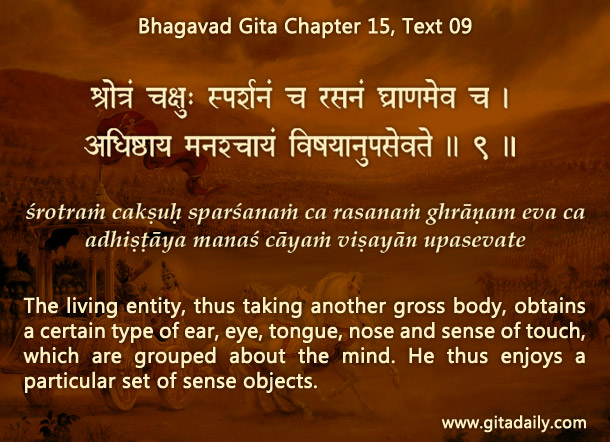Suppose a person is watching TV, and a thief sneaks into the house and starts carrying the TV away. However, the person is so engrossed that he follows the thief not to stop the robbery but to keep watching the TV.
Such a farcical robbery happens in our inner world, wherein the mind acts as both the TV and the TV-thief. The Bhagavad-gita (15.09) indicates that the mind is the central integrator of the inputs from the various senses. The mind acts like a TV that plays out various thoughts, fantasies and worries triggered by the sensory inputs. The movie displayed by the mind can be so captivating that we get completely lost in it, forgetting who we are and what we are supposed to do.
Thereafter, the mind acts like the TV-thief – it leads our consciousness away in various unproductive or unworthy directions. And it misleads our consciousness so subtly that we frequently don’t even realize we are being distracted. Thus, the mind is like a hi-tech thief who rigs the TV so that it broadcasts a captivating program, ensuring that we remain oblivious to the robbery.
If we could just stop watching the TV for a few moments, that break would break the TV’s spell – and we would immediately stop the robbery. Similarly, if we could just stop being captivated by the mind for even a few moments, that break would break the mind’s spell – and we would stop it from carrying away our consciousness.
The most empowering ways to counter the mind’s spell are scriptural study and meditation. Scriptural study reminds us intellectually that we are different from the mind. And meditation reinforces those intellectual reminders through experiential confirmations – by meditating, we gain access to higher, spiritual realities so fulfilling that they make the mind’s allurements resistible.
To know more about this verse, please click on the image
Explanation of article:
Podcast:


SUPER EXAMPLE PRANAM
Perfect Example Guruji. Thank you.